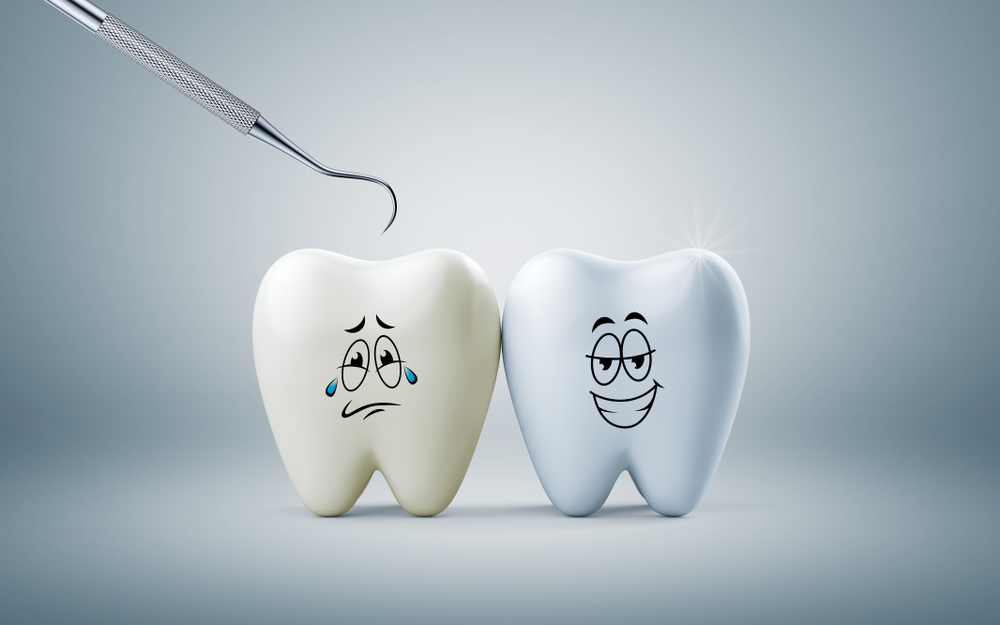If your teeth have ever felt fuzzy after a long day or after eating a sugary snack, the substance that you were feeling on the surface of your teeth was plaque. Everyone gets plaque on their teeth, and the mere presence of plaque on your teeth — or your child’s teeth — should not make you feel alarmed. However, plaque does contribute to gum disease, cavity formation, and other dental problems, so it is a big deal.
What Is Plaque?
The American Academy of Periodontology defines plaque as the sticky, colorless film that constantly forms on your teeth. Plaque is a combination of sugar, leftover food particles, saliva, bacteria, and the acidic substances secreted by bacteria. Everyone has some bacteria in their mouth, and so everyone develops some plaque. However, some people develop plaque more quickly than others, either because they have more bacteria in their mouths or their mouth contains more sugar to feed those oral bacteria.
Why Is Plaque a Problem?
Plaque can cause a few different dental problems. The bacteria within the plaque secrete acidic substances when they feed on sugar. This acid can wear away at the tooth enamel, leading to the formation of cavities. The bacteria in plaque can also contribute to gum disease, which is basically an infection of the gums with oral bacteria. In its early stages, gum disease causes the gums to become inflamed and a bit sore. Later on, it can lead to loose and missing teeth.
If you do not remove plaque promptly, it can harden into a substance called tartar. Tartar is nearly impossible to remove on your own via brushing and flossing. It needs to be removed by a dental professional. As long as it remains on your teeth, the bacteria it contains will increase your risk of cavities and gum disease. Tartar also stains the teeth a deep yellow color.
How Can You Remove Plaque From Your Child’s Teeth?
Keeping your child’s teeth free from plaque will help decrease their risk of dental problems. The best way to control plaque is via regular brushing and flossing. If your child is under the age of 6, you should help them brush their teeth to ensure they do a thorough job. Even after they turn 6, make sure you observe their brushing and remind them to brush twice per day. Letting your child choose their own toothbrush and their own flavor of toothpaste can help make brushing more fun!
How Can You Reduce Plaque Formation?
The less sugar your child consumes, the less plaque their teeth will develop. Save candies, soda, and juice as occasional treats, and instead give your child plenty of crunchy fruits and veggies, low-fat dairy, and nuts as snacks. Encourage your child to drink more water, which is not only sugar-free, but also helps rinse bacteria and sugar off the teeth before decay can set in.
If you take steps to reduce plaque formation and to remove plaque from your child’s teeth, they can look forward to great oral health, now and in the future. Don’t hesitate to contact your dentist or dental hygienist if you have any lingering questions about plaque.
